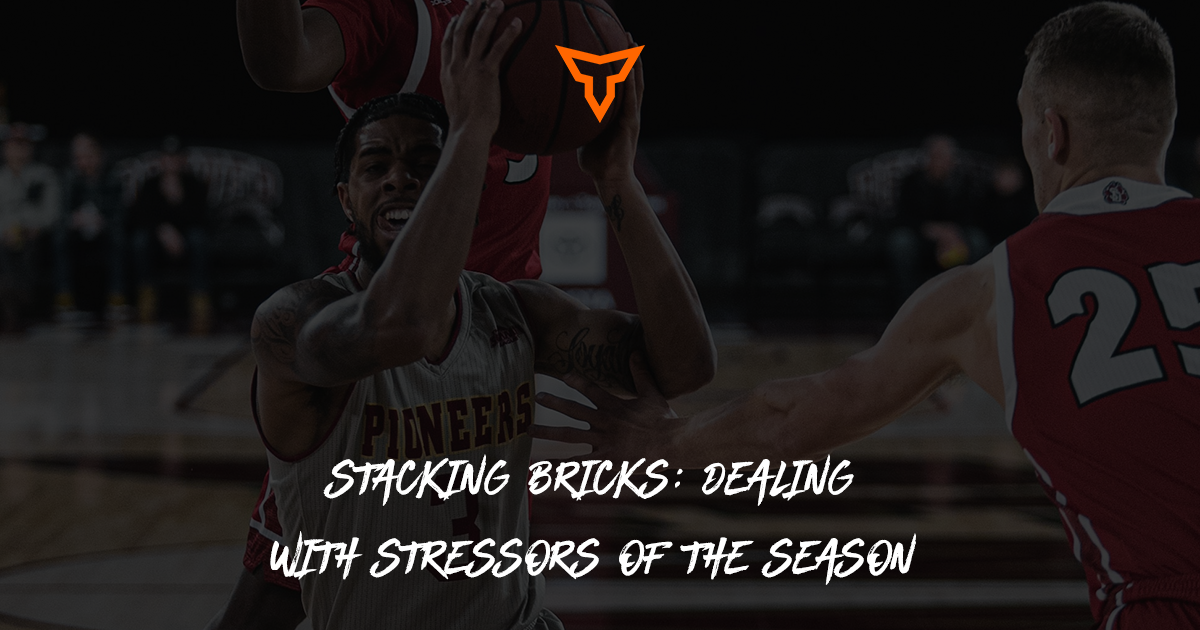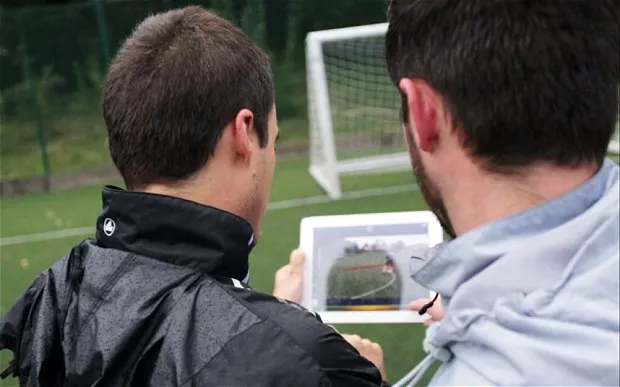Stress Management & Decompression Strategies for Strength Coaches
Strength coaches, by far, have the best jobs in the world. I love what I do and wouldn’t trade it for any other career. I believe that if you asked any other coach, he or she would tell you the same. However, just like all dream jobs, there are pros and cons -- and we tend to not address those cons as much as we do the pros.
What we often don’t talk about is that this profession can be extremely taxing. Not just physically, but mentally and emotionally as well. This career path is driven by passion, which means coaches put everything they have into their program and athletes, even if the financial return seems lopsided at times.
Coaches work extremely long hours, place high demands of activity on their bodies and even higher demands of stress on their minds. We are emotionally involved in every single person that does a single rep or set under our care. Not a lot of people on the outside of the industry know just how many things a strength coach may be juggling within their role.
Burnout is REAL.
Some of my good friends in this industry have had to hang up the whistle over the years due to the highly strenuous nature of our field. And it should NOT be this way. We get into this industry to help others and often lose sight of the fact that we need to also take care of ourselves. You can’t pour from an empty cup. If you’re physically and mentally drained, you can’t be happy within your own day-to-day life, let alone pour more of yourself into the lives of so many other athletes that depend on you.
Everyone’s life and situation is unique, so there are no set rules to this side of training. What I can do is share five really helpful things that have helped me over the years in avoiding burnout, staying fully engaged in my craft, and continuing to love my job every single day.
I’m a husband, father of two, business owner, and team strength coach. I’d be lying if I said sometimes I didn’t get overwhelmed, but these five things below have always helped me to find level ground and continue to be my best self daily.
Train
This may seem obvious, but you’d be surprised how many lightbulbs are going off in readers’ heads right now. One of the absolute best forms of stress reduction is exercise. As a coach, we should already be practicing what we preach to some degree but an additional benefit of that is the reduction of stress through physical activity.
Many strength coaches probably fell in love with the gym before they figured out how to leverage their training hobby into a full-time career. Training is the roots to why or how we got into this field, but so many coaches abandon those roots. Even worse, they use the same excuses to not lift that we would ridicule our athletes for.
Bottom line: No matter how much stress or pressure you feel, just know that the iron barbell will always have a positive effect on your life. No one has ever worked out and said, “Wow, I wish I didn’t just do that. I’m so stressed now.”
Additionally, the recovery from your training can be equally as relaxing. Aside from sleep and sound nutrition, we also have access to incredible recovery techniques that have benefits spanning beyond physical returns. Some of the things I’ve tried and enjoyed include:
- Sensory Deprivation Tanks
- Game Ready and/or Normatec Boots
- Meditation apps
- Hypnosis
- IV Therapy
- Massage, cupping, RPR, dry needling, etc.
The list goes on and on. The key is to find things you enjoy (and that actually work) so that you can adhere to them and continue to keep your mind and body in a good place.
Positive Self-Talk
Another great tip that I picked up from a friend in the coaching space is the art of self-talk. Not all self-talk is positive. In fact, this is something that I’m working on every day and I believe that there are many coaches who also struggle with this.
Our internal thoughts, or self-talk, can really sway the type of energy we put out into the world. Recently, Dr. Lisa Lewis, discussed some of the negative types of self-talk that many coaches (and our athletes) will experience. These are directly from her article on T-Nation covering psychology in strength training. How many do you experience on a weekly basis? Those include:
- Black or White Thinking: Thinking only in extremes (all-or-nothing) thinking.
- Arbitrary Inference: Generalizing one negative comment or experience to be representative of everything in your life.
- Mental Reading: Presuming you know what others are thinking.
- Catastrophizing: Thinking that the absolute worst thing that can happen, will happen.
- Emotional Reasoning: Presuming that feelings are facts.
- "Shoulds": Focusing on how things "should" have gone down, as opposed to how they actually are.
The key is to identify when and why we are having these types of internal thoughts. When you experience these types of things, what is happening around you or what is triggering them? If you can identify the cause, you can then reshape your thinking, adjust the environments you surround yourself with and ultimately avoid the triggers altogether.
Why is this important for a coach? Because if we allow these negative things to manifest into our thoughts or actions, then we have officially lost control of our emotional state. If we become consumed by negativity, we lose our confidence. If we lose our confidence, we question our purpose. If we question our purpose, the downward spiral of stress and uncertainty begins. The good thing is that we are fully in control of these outcomes. Unlike a game where the referee might miss a call, we are the masters of our own thoughts and energy. The more we can hone this skill, the more we can grow as people.
Hobbies
Last, but not least, is something that I’ve recently come to learn through personal experience and that is the importance of hobbies that are unrelated to your career. Look, I get it, we want to be the best coach possible. We want to learn everything. We want to experiment. We love to be with our athletes. I think it’s really important to do all of those things, but still find a way to peel yourself away from the gym and do something that you enjoy -- totally unrelated to training & coaching. It doesn’t have to be daily, but if you can find something that you can do consistently it won’t hurt.
I learned this through observing my athletes, actually. We train hard. We follow a program based on their specific needs and goals. But, I found that one of the things that keeps us most connected and growing our relationship is simply talking about ANYTHING other than their sport.
Never forget that these are people, with families, hobbies of their own, interests outside their sport, etc. Seeing my athletes light up when we talk about the latest Netflix series or how many fish they caught over the weekend or the new painting they finished really filled me with as much joy as seeing them score a basket or a touchdown in a game.
It really sparked me to pursue my own personal hobbies and interests outside of training, which I believe many coaches neglect doing. Taking care of yourself physically through training and mentally through positive self-talk or pursuing your personal interests are three major ways you can decompress as a coach.
The more we better ourselves, the more we can better our athletes and clients.
Subscribe to our blog
Subscribe to receive the latest blog posts to your inbox every week.
Related posts

Stacking Bricks: Dealing with Stressors of the Season

Strength and Conditioning Networking 101


